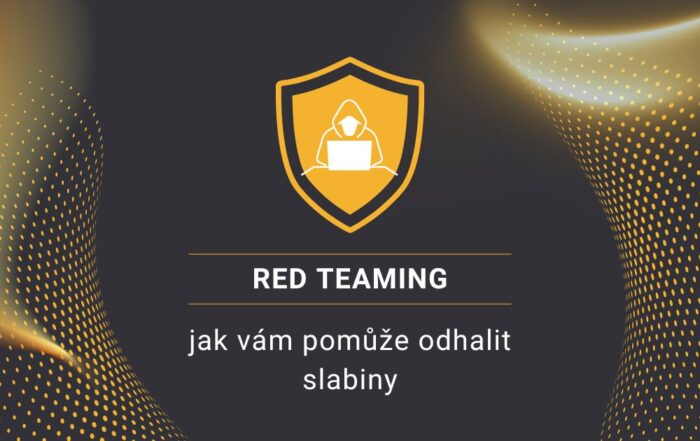Hacknuté robotické vysavače v USA začaly nadávat
Robotické vysavače v různých amerických městech byly napadeny hackery, přičemž útočník fyzicky ovládal vysavače a nadával skrze jejich integrované reproduktory.
Postižené vysavače byly vždy čínské značky Ecovacs Deebot X2.
Útoky se odehrávaly během několika dnů za sebou. Příkladem může být případ z 24. května, kdy Deebot X2 začal pronásledovat psa, zatímco z reproduktorů se ozývaly nadávky. O pět dní později bylo napadeno další zařízení. V El Pasu začal vysavač vydávat rasistické nadávky.
Výzkumníci v loňském roce prokázali chybu, která jim umožnila obejít zadání PIN kódu k zařízení Deebot X2 a získat přístup k vysavači. Společnost Ecovacs ve svém prohlášení uvádí, že tuto chybu vyřešila a že také plánuje další zvýšení bezpečnosti pomocí listopadové aktualizace.
Zařízení pro chytrou domácnost připojená ke cloudu vedou k podobným příběhům již několik let. Někdy jsou to následky hackerských útoků, jindy kompromitované přihlašovací údaje.
Vašemu podniku dáváte vše.
Chráníte i jeho digitální život?
Zanechte nám svůj e-mail a my vám poradíme, jak zlepšit zabezpečení vaší společnosti.
GitHub opravuje kritickou zranitelnost v jejich Enterprise Serveru
GitHub vydal bezpečnostní aktualizace pro Enterprise Server (GHES) které řeší několik problémů, včetně kritické chyby, která by mohla umožnit neautorizovaný přístup k instanci.
Tuto zranitelnost, sledovanou pod označením CVE-2024-9487 s CVSS skóre 9,5 by bylo možné zneužít k obejití autentizace SAML single sign-on (SSO) což by umožnilo neautorizovanému uživateli přístup k instanci.
Organizacím, které provozují zranitelnou verzi GHES na vlastním serveru, se důrazně doporučuje upgrade na nejnovější verzi k ochraně před potenciálními bezpečnostními hrozbami.
Kritická zranitelnost v Kubernetes může umožnit neautorizovaný přístup k VM
Kritická zranitelnost v Kubernetes může umožnit neautorizovaný SSH přístup k virtuálnímu stroji, na kterém běží image vytvořený pomocí Kubernetes Image Builder.
Problém je v současnosti sledován pod označením CVE-2024-9486 a spočívá v použití výchozích přihlašovacích údajů zavedených během procesu tvorby image. Útočník by se mohl připojit přes SSH a využít tyto přihlašovací údaje k získání přístupu s právy roota k zranitelným VM.
Řešením je předělat ohrožené image pomocí Kubernetes Image Builder ve verzi v0.1.38 nebo novější, který během procesu sestavování nastaví náhodně generované heslo a po dokončení procesu zakáže výchozí účet „builder“.
Pokud v tuto chvíli není možné upgradovat, dočasným řešením je zakázání účtu builder příkazem: usermod -L builder.
OpenAI potvrdila, že útočníci využívají ChatGPT k psaní malwaru
OpenAI přiznala, že ChatGPT byla zneužita kybernetickými zločinci ke generování škodlivého softwaru, šíření dezinformací a útokům spear-fishing. Tato zpráva je prvním oficiálním potvrzením, že jsou generativní AI nástroje využívány k posílení ofenzivních kybernetických operací.
Bylo zaznamenáno, že čínská skupina, známá jako SweetSpecter, zneužívala ChatGPT k odesílání phishingových e-mailů s škodlivými ZIP přílohami na osobní e-mailové adresy zaměstnanců OpenAI.
Dalším případem byla íránská skupina CyberAv3ngers, která využívala ChatGPT k vývoji vlastních shell skriptů a obfuskaci kódu.
Třetí případ se týká íránských útočníků Storm-0817. Tato skupina využila ChatGPT k ladění škodlivého softwaru, vytvoření Instagramového scraperu a vývoji vlastního malware pro platformu Android spolu s podporou C2 serveru.
Popsané případy dokazují, že AI nástroje mohou zefektivnit ofenzivní operace pro méně kvalifikované útočníky.
Chyba ve službě SolarWinds Web Help Desk je zneužívána při útocích
Cybersecurity and Infrastructure Security Agency (CISA) přidal do svého seznamu ‚Known Exploited Vulnerabilities‘ tři nové chyby, mezi něž patří kritická chyba pevně zakódovaných přihlašovacích údajů v softwaru pro IT podporu SolarWinds Web Help Desk (WHD), kterou společnost SolarWinds opravila koncem srpna 2024. Tato chyba, kterou sleduje kód CVE-2024-28987, umožňuje vzdáleným neověřeným útočníkům přístup k endpointům WHD a manipulaci s daty.
SolarWinds vydal opravný patch jen čtyři dny poté, co obdržel zprávu od výzkumníka z Horizon3.ai, Zacha Hanleyho, který tuto chybu objevil. Výrobce naléhavě doporučuje systémovým správcům dohledat k aktualizované verzi WHD 12.8.3 Hotfix 2 nebo novější.





